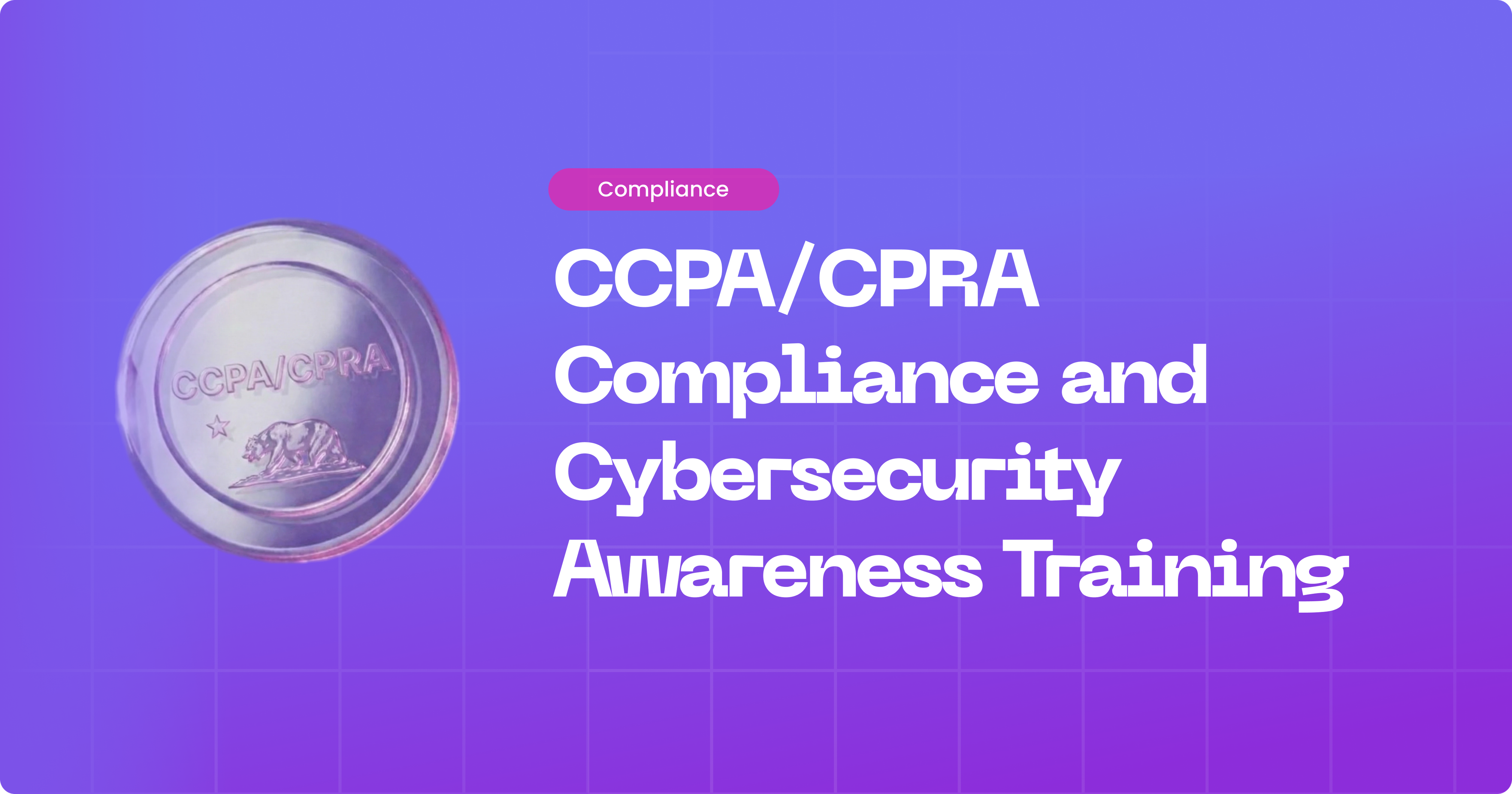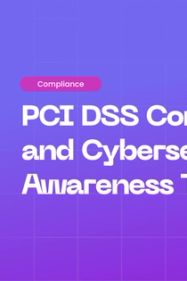
The California Consumer Privacy Act (CCPA) and its expanded version, the California Privacy Rights Act (CPRA), have redefined how businesses must handle personal data in the U.S. These laws emphasize transparency, control, and security of consumer information — and they include clear expectations for how employees handle that data.
While much of the focus lands on policies and technology, human behavior remains one of the biggest threats to privacy compliance. That’s where Cybersecurity Awareness Training (CSAT) plays a vital role.
This article explores how CSAT helps businesses meet CCPA/CPRA obligations, avoid breaches, and foster a culture of privacy accountability across all departments.
CCPA / CPRA Overview
CCPA and CPRA grant California residents rights over their personal information, including:
- The right to know what data is collected
- The right to delete personal data
- The right to opt-out of sale or sharing
- The right to limit use of sensitive personal data
Under CPRA, new requirements include:
- Mandatory risk assessments
- Data minimization and purpose limitation
- More stringent vendor management
- Creation of the California Privacy Protection Agency (CPPA)
Critically, both laws require businesses to implement reasonable security measures — and that includes training employees on their responsibilities.
Where Employee Training Is Required
While CCPA/CPRA don’t list every control in detail, the law (especially CPRA) mandates:
- Training for employees responsible for consumer inquiries (Section 999.317)
- Clear accountability for how personal data is accessed, shared, and deleted
- Proof of "reasonable security" measures, which courts often interpret to include training
Training is expected for:
- Customer support staff
- Marketing and sales teams
- Data governance and compliance personnel
- Any employee who might handle or influence access to personal data
The Human Threat to Privacy Compliance
Many CCPA/CPRA violations stem from employee mistakes or manipulation, not malicious insiders:
- Responding to fraudulent data deletion requests without identity verification
- Mishandling opt-out preferences due to poor awareness of process
- Sharing personal data with unauthorized third parties
- Falling for phishing that exposes consumer records
- Using customer data beyond the stated business purpose
All of these create compliance risks — and potential grounds for enforcement actions or lawsuits under the private right of action.
Simulating Privacy-Relevant Attacks
Our CSAT platform trains employees to recognize and respond to threats that could compromise consumer privacy:
🔒 Phishing Simulations
Scenarios targeting support agents or data analysts, requesting personal information, deletion, or opt-out changes.
📱 Smishing Simulations
SMS-based impersonation of consumers or vendors seeking sensitive personal data.
☎️ Vishing Simulations
Voice calls claiming to be data subjects exercising their rights or attackers posing as privacy officers or regulators.
🧑💼 Insider Risk Scenarios
Training employees on the dangers of over-collecting, oversharing, or improperly using consumer data.
These simulations reflect real-world privacy threats and can be customized based on your CCPA/CPRA data flows.
How Our Platform Supports CCPA / CPRA Compliance
Our solution enables organizations to align with privacy regulations through:
- ✅ Role-specific training paths for marketing, support, and data teams
- 🔄 Recurring simulations aligned with privacy breach risks
- 📊 Training analytics to monitor performance and improvement
- 🧾 Audit-ready records to demonstrate “reasonable security” efforts
- 🌐 Multilingual support for global organizations with California residents
We help privacy, legal, and security teams deliver defensible training programs that scale across business units.
Best Practices for CCPA/CPRA-Aligned Training
To meet regulatory expectations and reduce human error:
1. Train High-Exposure Roles
Focus on those interacting with data subject rights, opt-outs, and consumer support.
2. Simulate Likely Privacy Threats
Phishing, smishing, and vishing targeting consent flows, deletion requests, and third-party sharing.
3. Document Everything
Keep detailed records of who was trained, when, and how — and retain evidence for at least 24 months.
4. Remediate Failures Quickly
Address simulation failures with focused training and track improvements over time.
5. Extend to Vendors
Ensure service providers with access to consumer data are also trained — a CPRA requirement for data processors.
Penalties and Enforcement Risk
The CPPA now has authority to investigate and penalize companies for noncompliance. Risks include:
- Administrative fines up to $7,500 per intentional violation
- Enforcement actions for mishandling sensitive personal data
- Private lawsuits if a breach occurs due to lack of “reasonable security”
Demonstrating structured, documented employee training is a critical part of legal defense — and proactive risk reduction.
Why Privacy-Focused Organizations Choose Our Platform
We support organizations that prioritize privacy, compliance, and consumer trust. Features include:
- 🎯 Privacy-oriented simulation scenarios
- 🧠 Behavioral analytics across departments and risk levels
- 🗂️ Exportable training logs for legal or audit review
- 🔁 Automated training cycles and smart reminders
- ⚖️ Cross-framework support (GDPR, CPRA, ISO 27701)
Whether you're a B2C brand, adtech vendor, or SaaS platform serving California residents, we make it easy to deliver privacy-first training at scale.
Conclusion: Privacy Starts with People
Policies and tools can’t prevent breaches caused by human error. In today’s regulatory climate, employee awareness is a critical privacy control.
By aligning your Cybersecurity Awareness Training with CCPA/CPRA obligations, you reduce the risk of fines, breaches, and reputational damage — while building a culture that respects consumer rights.
Request a Demo
See how our AI-powered CSAT platform helps you meet CCPA/CPRA obligations with real-world privacy simulations, measurable outcomes, and compliance-ready reports. 👉 Request a Demo Now

